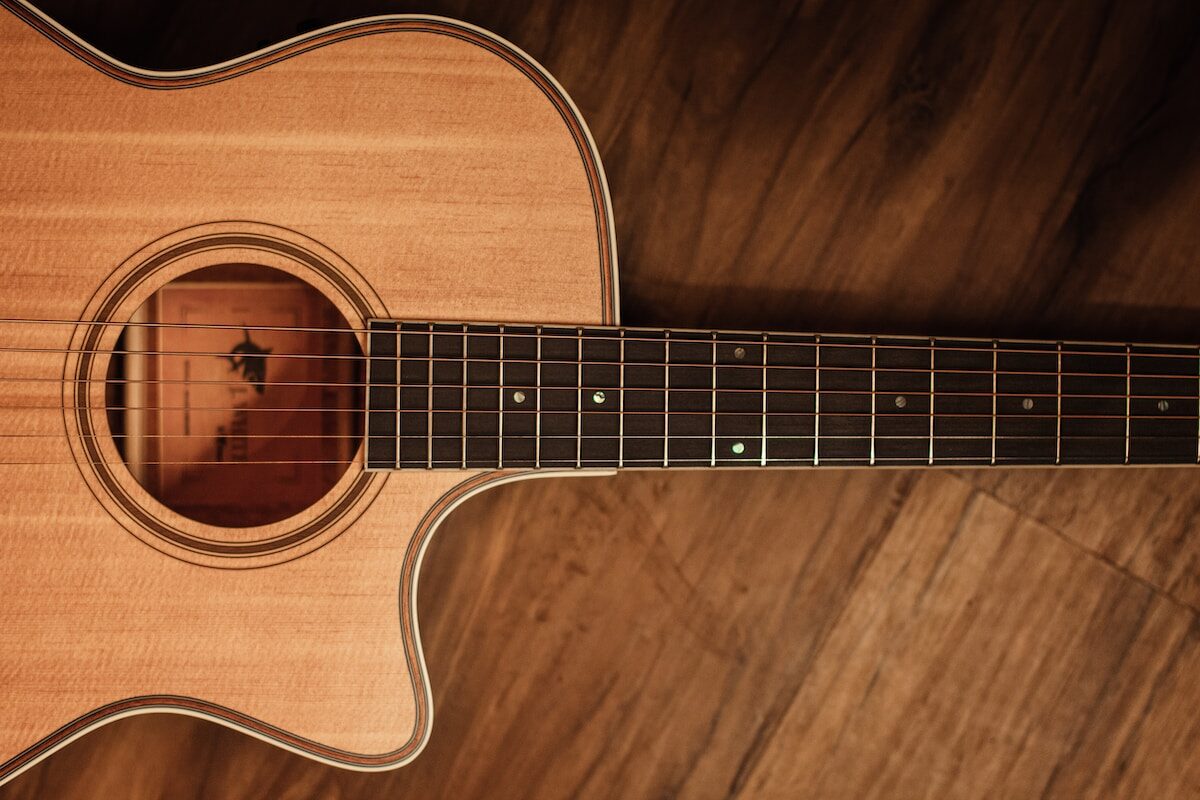The construction of a guitar body is an art that requires skill, knowledge, and experience. The type of wood used in the construction of the guitar body plays a significant role in determining the overall sound and tone of the instrument. From the bright and snappy tone of ash to the warm and rich sound of mahogany, each wood has its own unique tonal characteristics.

- Alder – Alder is a popular choice for guitar body construction, especially for Stratocaster style guitars. It is lightweight and has a balanced tonal response, with a tight and focused midrange. It has a bright and punchy tone, with a well-defined high end and a tight low end.
- Mahogany – Mahogany is a dense and heavy wood, commonly used in Les Paul style guitars. It has a warm and rich tone, with a thick and full midrange, and a strong low end. Mahogany is known for its sustain and resonance, and it is well-suited for heavy and aggressive playing styles.
- Maple – Maple is a hard and dense wood, often used in hollowbody and semi-hollowbody guitars. It has a bright and articulate tone, with a clear and defined high end, and a tight and punchy low end. Maple is also known for its visual appeal, with its distinctive grain pattern often used in figured tops.
- Ash – Ash is a light and resonant wood, used in many Telecaster style guitars. It has a bright and snappy tone, with a strong and punchy midrange, and a tight and focused low end. Ash is also known for its distinct grain pattern, often used in natural or translucent finishes.
- Basswood – Basswood is a lightweight and soft wood, commonly used in budget-friendly guitars. It has a balanced and neutral tone, with a scooped midrange and a mellow high end. Basswood is easy to work with and finish, making it a popular choice for beginner and intermediate level guitars.
- Poplar – Poplar is a lightweight and soft wood, often used as a substitute for alder or ash in budget-friendly guitars. It has a balanced and neutral tone, similar to basswood, with a slightly more pronounced midrange. Poplar is also easy to work with and finish, and it can be stained to resemble other woods.
Each of these woods has its own unique tonal characteristics and visual appeal, and choosing the right one for your guitar body can greatly impact your playing experience. Consider your playing style, genre, and personal preferences when selecting the wood for your guitar body construction.
While wood is the most common material used in guitar body construction, there are other materials that have been used over the years to create a different tonal palette or aesthetic. Some of the materials other than wood used in guitar body construction are:

- Aluminum – Aluminum is a lightweight and durable material that produces a bright and articulate tone. It has been used in the construction of electric guitars, such as the Travis Bean guitar and the Kramer aluminum neck guitar.
- Carbon Fiber – Carbon fiber is a composite material that is lightweight, strong, and durable. It produces a bright and focused tone, with excellent sustain and clarity. It has been used in the construction of high-end electric and acoustic guitars, such as the RainSong carbon fiber guitars.
- Resin – Resin is a synthetic material that can be molded into any shape or design. It has been used in the construction of guitar bodies for its unique aesthetic and tonal properties. Resin bodies can be made to look like natural materials such as wood, and they produce a bright and snappy tone.
It is essential for any guitar enthusiast, whether a beginner or a professional, to understand the various materials used in guitar body construction. Knowing about the different materials will help in making an informed decision when selecting a guitar that suits one’s preferences and playing style. Additionally, understanding the unique tonal characteristics of different materials can aid in creating a personalized sound. Being knowledgeable about guitar body materials can also help in determining the quality and durability of a guitar, which is crucial in making a worthwhile investment.










































































































